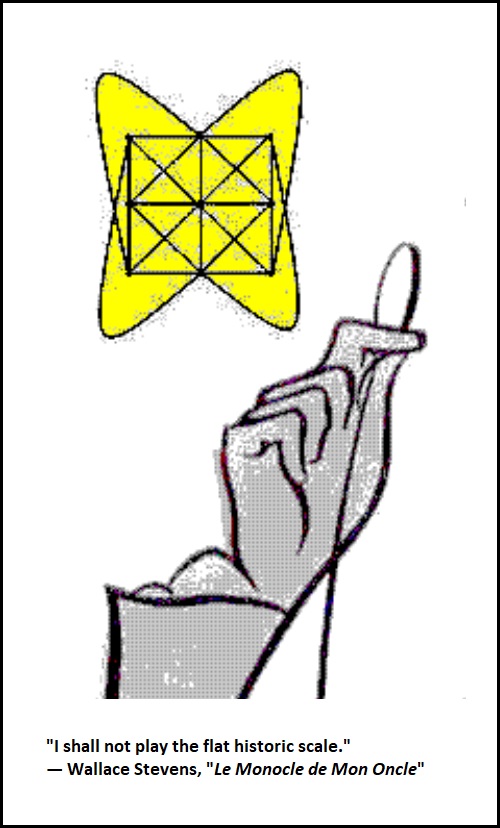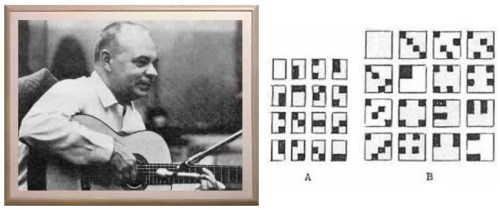David Brooks's column today quotes Niebuhr. From the same source—
Reinhold Niebuhr, The Irony of American History—
Chapter 8: The Significance of Irony
Any interpretation of historical patterns and configurations raises the question whether the patterns, which the observer discerns, are "objectively" true or are imposed upon the vast stuff of history by his imagination. History might be likened to the confusion of spots on the cards used by psychiatrists in a Rorschach test. The patient is asked to report what he sees in these spots; and he may claim to find the outlines of an elephant, butterfly or frog. The psychiatrist draws conclusions from these judgments about the state of the patient’s imagination rather than about the actual configuration of spots on the card. Are historical patterns equally subjective?
….
The Biblical view of human nature and destiny moves within the framework of irony with remarkable consistency. Adam and Eve are expelled from the Garden of Eden because the first pair allowed "the serpent" to insinuate that, if only they would defy the limits which God had set even for his most unique creature, man, they would be like God. All subsequent human actions are infected with a pretentious denial of human limits. But the actions of those who are particularly wise or mighty or righteous fall under special condemnation. The builders of the Tower of Babel are scattered by a confusion of tongues because they sought to build a tower which would reach into the heavens.
Niebuhr's ironic butterfly may be seen in the context of last
Tuesday's post Shining and of last Saturday's noon post True Grid—

The "butterfly" in the above picture is a diagram showing the 12 lines* of the Hesse configuration from True Grid.
It is also a reference to James Hillman's classical image (see Shining) of the psyche, or soul, as a butterfly.
Fanciful, yes, but this is in exact accordance with Hillman's remarks on the soul (as opposed to the spirit— see Tuesday evening's post).
The 12-line butterfly figure may be viewed as related to the discussions of archetypes and universals in Hillman's Re-Visioning Psychology and in Charles Williams's The Place of the Lion . It is a figure intended here to suggest philosophy, not entertainment.
Niebuhr and Williams, if not the more secular Hillman, might agree that those who value entertainment above all else may look forward to a future in Hell (or, if they are lucky, Purgatory). Perhaps such a future might include a medley of Bob Lind's "Elusive Butterfly" and Iron Butterfly's "In-a-Gadda-da-Vida."
* Three horizontal, three vertical, two diagonal, and four arc-shaped.


























